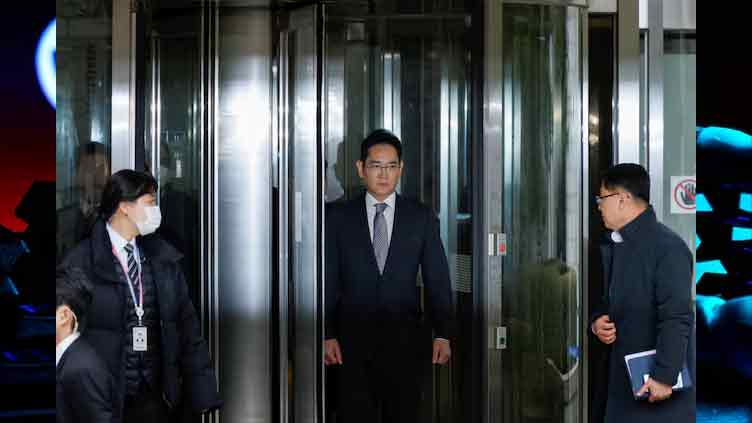Samsung chief faces ruling on controversial merger

Technology
The case highlights long-running legal risks for Lee
SEOUL (Reuters) - Samsung Electronics (005930.KS) Chair Jay Y. Lee faces a ruling by a Seoul appeals court on Monday over a 2015 merger that prosecutors said was designed to cement his control of the tech giant at the expense of minority shareholders.
The case highlights long-running legal risks for Lee, who faces growing questions about his ability to lead Samsung Electronics, the world's top memory chip and smartphone maker grappling with growing competition and lacklustre stock prices.
A lower court last year cleared Lee of all charges including stock price manipulation and accounting fraud related to a 2015 $8 billion merger between two Samsung affiliates - Samsung C&T (028260.KS) and Cheil Industries.
Prosecutors later appealed to the Seoul High Court, seeking a five-year jail term this time, citing a separate ruling in August that said Samsung BioLogics, an affiliate of Cheil Industries, breached accounting standards by overstating its assets to justify the merger.
Lee has denied wrongdoing, saying in court last November, "I never intended to deceive or damage investors for personal gain".
The lower court ruled the prosecution had failed to present enough evidence to establish that Lee's succession was the main reason for the merger, saying there was a "rational business purpose." The court even said the merger "benefited Samsung C&T shareholders by strengthening Lee's control of the group and stabilising management."The appeals court's ruling commences 2 p.m. local time (0500 GMT). The case could go to the top Supreme Court if one of the two sides decides to appeal.
SUCCESSION SCANDALS
For nearly a decade, Lee, the leader of South Korea's biggest conglomerate, has faced a series of legal challenges including those from the 2015 merger that paved the way for his succession after his father Lee Kun-hee had a heart attack in 2014.
Until 2021, Lee served a combined 18 months in jail for bribery charges in a scandal that led to massive protests and ultimately brought down then-President Park Geun-hye in 2017.
In 2022, South Korea's now impeached President Yoon Suk Yeol pardoned Lee, with the justice ministry saying the business leader was needed to help overcome a "national economic crisis".
The controversial merger sparked backlash from investors such as U.S. hedge fund Elliott and raised questions about the corporate governance of Korea's family-owned conglomerates, which are often criticised for putting the interest of family members ahead of other shareholders.
In 2023, the South Korean government was ordered to pay around $108.5 million to Elliott, which sued it over the role playedby the country's pension fund in approving the merger.
Last year, the National Pension Service, formerly the biggest shareholder in Samsung C&T, filed a lawsuit against Lee, seeking damages from the merger that allegedly undervalued the key unit.
Meanwhile, the conglomerate's crown jewel Samsung Electronics warned on Friday of sluggish sales of its artificial intelligence chips in the current quarter.
Samsung Electronics has lost out to smaller competitor SK Hynix in supplying high-bandwidth memory (HBM) chips to Nvidia's AI graphics processing units and is seen missing much of the profits generated by the current AI boom.


